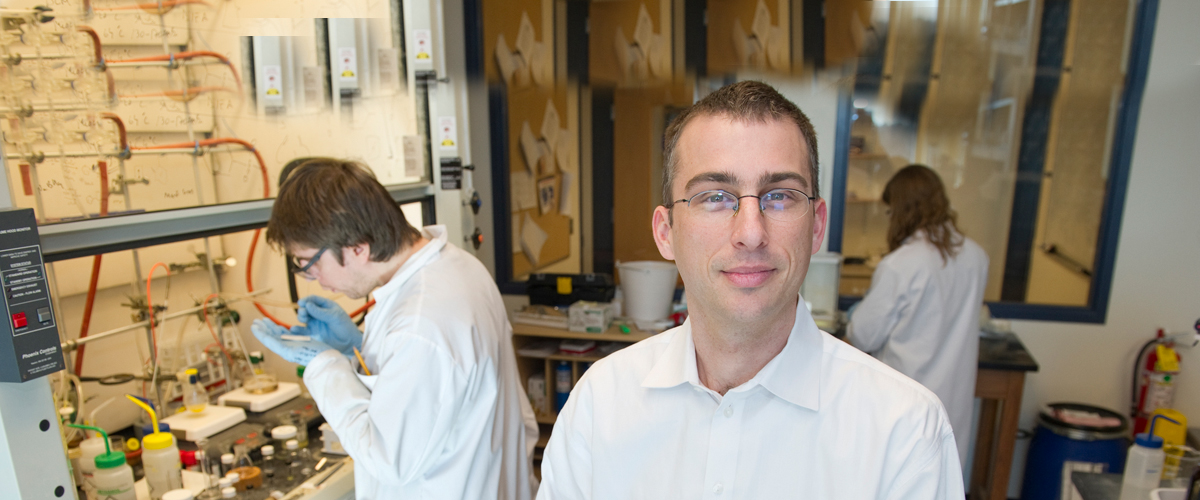by Angela Herring
During his nine years working in the pharmaceutical industry, Michael Pollastri learned to protect his research and data with extreme caution. “In the drug industry, everything is super secret,” said Pollastri, now an associate professor of chemistry and chemical biology at Northeastern. “It’s the culture.”
But Pollastri said this secrecy model doesn’t work when it comes to curing infectious diseases such as African sleeping sickness and Chagas disease, which affect the poorest members of the global community but are largely “neglected” by the industry. What’s more, “there’s not enough money going around to spend time on projects in which no one is sharing information,” Pollastri said.
To overcome this problem, Pollastri envisions a new model for data sharing and drug discovery, and he’s turning to crowdfunding to make it happen. He has now launched a campaign on Microryza, a crowdfunding platform specifically for science research, to support the development of this new model, which consists of a central portal for sharing quantitative data as well as a small amount of funds to support experimental work by the scientists involved.
In his own research, Pollastri has employed a high-throughput screening method to test whether thousands of investigational drugs could be repurposed to treat African sleeping sickness, which affects 30,000 people each year. But his is just one of a handful of research teams around the world working to fast track a drug development program for the neglected tropical disease and others like it.
“The issue is that everyone is working on their own stuff in parallel, and there’s not a really good mechanism to cross-fertilize projects,” Pollastri explained. In response to this challenge, his new data sharing framework will allow researchers working on similar problems to collaborate without fear of having their ideas stolen or their intellectual property infringed upon.
“It’s not completely releasing the data publically, which is what everyone’s afraid of,” Pollastri said. “It’s actually releasing data within a group of people who are trusted and have agreed to some integral rules about sharing and about what you can and cannot do with the information.”
In drug discovery, Pollastri said, there is something called the 90:10 rule. Ninety percent of the research dollars spent on healthcare each year goes toward curing diseases that infect 10 percent of the world’s population. “Or, if you flip that around,” Pollastri said, “90 percent of the world gets only 10 percent of the research focused on it.”
His new model aims to change that.
Originally published in news@Northeastern on October 28, 2013

